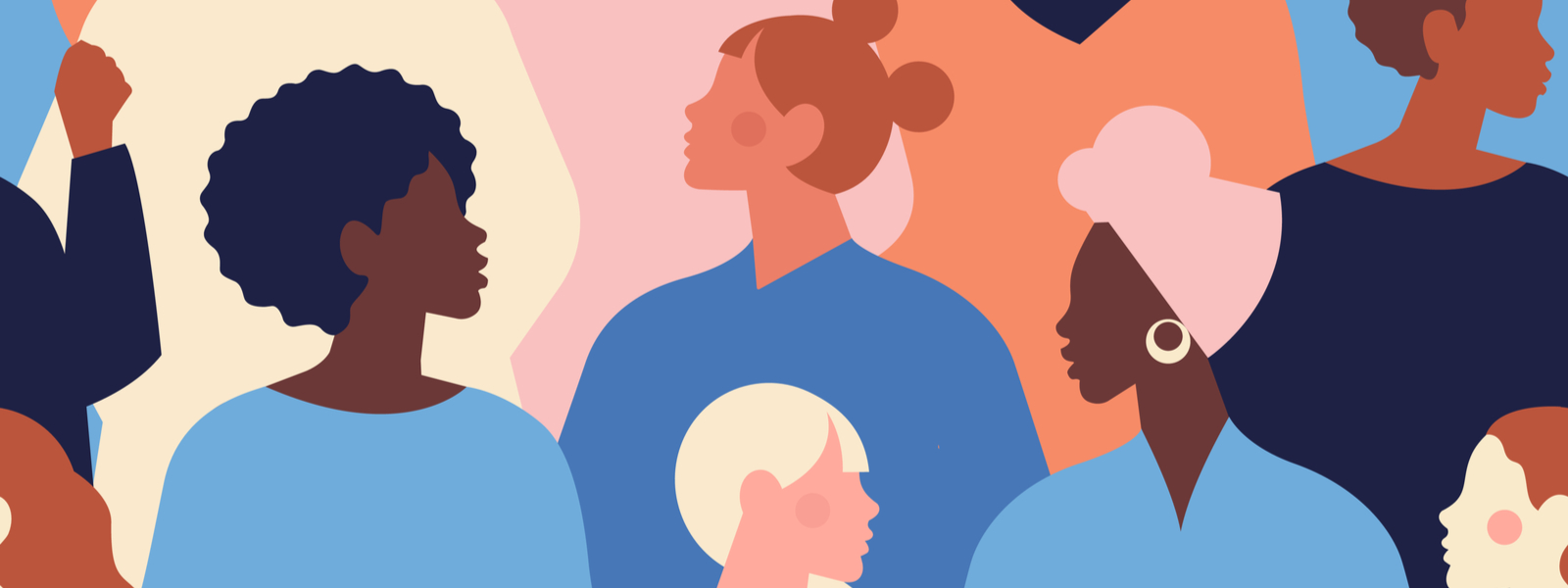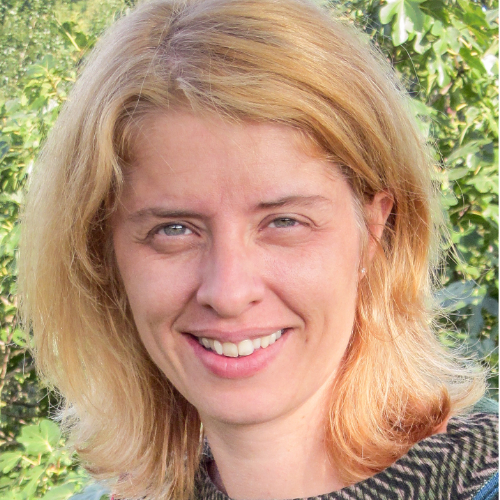Dr Daniela Sime is Professor of Youth, Migration and Social Justice in the School of Social Work & Social Policy. Daniela joined Strathclyde in 2005 and previously held posts at the universities of Glasgow and Stirling, where she also got her PhD in Education. We asked Daniela some questions about her work on social inequalities and what universities can do to help tackle these.
Your expertise lies in issues of social justice and inequality, particularly in children and young people’s education. Can you tell us about your work? What drives your passion for it?
I am passionate about issues of social justice and how we can tackle the inequalities we all witness and which are so damaging for individuals and society. These injustices are sometimes described as inevitable, for example, you hear some people saying ‘societies will always have racism or inequality’, but it doesn’t have to be that way. So my passion for my work stems from a sense of frustration at the injustice of inequality and the knowledge that we can do better to reduce or even eradicate inequalities.
I focus on children and young people’s experiences particularly, because disadvantages experienced in the formative years have long-lasting consequences. If you suffer from adversity in childhood, your chances of doing well later on are significantly diminished.
We are seeing these days the scenes of war and destruction in Ukraine, mainly women and children among the refugees- being a refugee has such a big impact on a child and family. One can of course come through adversity, but we should strive for a fairer society which creates the best environment for children to do well from the start. Also, children and young people have limited voice and representation; they depend on adults’ support and their needs can only be centred in policies when adults represent them. It has been great to witness significant developments in Scotland in recent years, focussed on giving young people more agency in society, in services and policy, including the voting age lowered to 16 in Scotland. Young people are increasingly leading in social justice and social activism, as the #BlackLivesMatter and Climate Justice movements have shown.
Your work focuses particularly on the experiences of traditionally marginalised groups, such as migrant youth. What are the ways in which academic research can address social inequalities? How can it affect policy and practice?
There is a lot that every one of us can do in universities through our research and work with students and external partners to address ongoing social inequalities. For a start, understanding the damaging effects of inequalities for individuals who suffer them, but also for the whole society. There is a great book, ‘The Spirit Level’ (by Kate Pickett and Richard Wilkinson), which shows with excellent data why more equal societies are better for everyone. Inequality leads to poorer education and health outcomes, lower life expectancy, higher rates of crime, more costs to services. So we all benefit from reducing it - and our role as teachers is to shine a light on inequalities and talk to our students about why a society which perpetuates inequalities is damaging, even if you are more privileged.
Another way we can help is by getting students to think about what they can do at present (e.g. campaigning or volunteering), and in their future professions, as teachers, social workers, lawyers, psychologists or policy makers. Talking about inequalities helps challenge misconceptions and stereotypes that people might hold, especially if they have no direct experience themselves or access to reliable evidence.
For those of us researching inequalities, generating robust data that allow us to influence policy and practice is key. This may be quantitative data, like documenting the increasing rates of child poverty, the unequal rates of mental ill health or unemployment during the pandemic or the gender pay gap, but also documenting people’s experiences of lived inequalities, to use this evidence in our work with practitioners and policy makers. I find that colleagues in policy and practice, Government and NGOs, look to us for robust and reliable evidence and trust us to make recommendations on solutions they can take forward. Partnership working in Scotland has never been stronger and this is one aspect of my job that I love.
With Scotland talking more openly about inequalities in recent years, it makes it easier to effect change. There is an energy in Scotland around issues of social justice; we have seen public support for migrants and refugees, demonstrations against gender inequalities and violence, commitment to climate justice. It is all very motivating for us in universities to do more.
Tell us about your journey to Strathclyde.
I qualified as a primary school teacher in Romania and worked for a while in an orphanage in Oradea, my hometown. I then took advantage of a scholarship scheme the Romanian Government was offering to new graduates to study for a short period abroad. I choose St Andrews University because I was planning to return to Romania and be a teacher, although it didn’t work out that way. I loved Scotland straight away and decided to stay, so I did my PhD at the University of Stirling, on a scholarship for international students.
My first post-doctoral job as researcher in the Centre for the Child & Society at the University of Glasgow opened my eyes to the social justice agenda for Scotland. I worked with Malcolm Hill, who is currently an Emeritus Professor at Strathclyde, on a project that focussed on children’s experiences of poverty (funded by Save the Children) and also became aware of other inequalities facing specific groups in Scotland. This made me realise that inequalities may look different in lower income and more affluent countries, yet have the same result: holding back some groups in society, while those in more privileged positions continue to prosper.
I came to Strathclyde in 2005, starting in a lecturing position. This was a permanent job and, as a Romanian citizen, I could not work in Scotland without a work permit, so the insecurity of temporary research contracts, linked to onerous and stressful visa applications, made me decide to move to a lecturing post. I worked in the School of Education at first, at the Jordanhill campus, and enjoyed being part of a team who taught Scotland’s future teachers. I was promoted to Senior Lecturer in 2008, then moved to Reader (2016) and Professor (2019).
Which women in your field - or academia generally - have inspired you and why?
There are many women I have found inspiring, from Simone de Beauvoir whose work was a complete revelation when I was at university in Romania in the 1990s, having never heard of feminism, to more contemporary writers. Perhaps too many to mention them all, but early on in my career, I met Prof. Ruth Lister (now Baroness) and she got me interested in understanding why poverty is allowed to persist. Prof Diane Reay’s work on educational inequalities was an early influence and she has written eloquently about her experiences of being an academic from a working class background. I found Prof Imogen Tyler’s work on stigma (‘Stigma: The Machinery of Inequality’) very helpful, in terms of thinking about the role of stigma and shame and how states keep certain groups (like people in poverty, asylum seekers, refugees, prisoners) as stigmatised, to perpetuate inequalities and maintain privileges for an elite. There are many women who have fought against racial injustices, especially in the US, whose work I always go back to, such as Maya Angelou (I named my daughter after her!), bell hooks (who unfortunately died last year) or Toni Morrison.
Closer to home, I enjoyed meeting Dame Jocelyn Bell Burnell at the Royal Society of Edinburgh when I won a British Academy mid-career Fellowship and found Dame Anne Glover’s speech at one of our leadership meetings in the University very inspiring.
Between 2017-2020, I had a Faculty role which allowed me to work with many impressive women across the university. I have often been inspired by the calibre of our talent and the determination and ambition I’ve seen, also by the personal sacrifices many women academics make to prioritise students, their colleagues and the University’s aspirations. We must build on this incredible energy, knowledge and commitment women bring to all levels in the university and ensure they get the recognition deserved.
The theme of IWD2022 is #BreakTheBias. What do you think are some of the biggest issues in terms of achieving equality in academia? What more could we be doing?
Academia is still an elitist sector, predominantly white and middle class, and in some disciplines predominantly male too. So there is a lot we can do in universities to reduce inequalities in the sector and that takes all of us - especially those privileged and in positions of influence. Universities can #BreaktheBias by ensuring we have equal gender representation in leadership and committees, reduce gender imbalances within disciplines and improve our recruitment strategies to ensure a diverse workforce and student body. We need to tackle some of the inherent inequalities in HE, including the culture of academia as a place for the privileged only.
In terms of representation, we need more women and people from underrepresented groups in senior and leadership roles, such as people from minority ethnic backgrounds, people with disabilities and LGBTQI+. Representation is important not just because it reflects the diversity of our society, but it makes academia a fairer space, where decisions are not made through the experiences of a minority group. In the UK, women in academia, particularly women of colour or disabled, are less likely to be in permanent contracts, be promoted to Reader and Professor level or get leadership roles. As a sector, we still have significant pay gaps between groups, which is unjust: a 15% pay gap between women and men, a 17% gap between Black and white staff and a 9% disability pay gap. The Covid-19 pandemic has exacerbated some of the existing inequalities, given the pressure on women in particular to fulfil caring roles in a disproportionate manner. As a sector, we can put measures in place to ensure inequalities are tackled, with ripple effects for other sectors in society. Societies often look to universities to lead and inspire.
Our widening access agenda is key, but inequalities start in early years, so we need to work with schools and communities to tackle the gaps in achievement earlier on. Those from groups less represented in universities will find academia a difficult place to be in, if the culture of the university is alienating- it is incredibly difficult to be ‘the only’ disabled or minority ethnic student (or staff) in your department, it makes it significantly more difficult to stay in academia. Students impacted by poverty, carers or from minoritized groups are more likely to drop out of university; they may feel like they don’t belong here and suffer micro-aggressions or discrimination on campuses. So there is a lot we can do to make our universities diverse and inclusive and make academia a beacon of equality and social justice.


